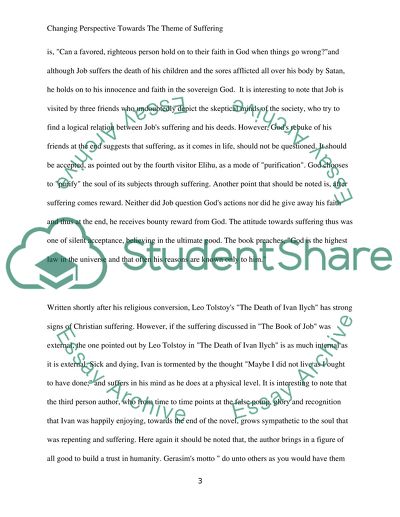Cite this document
(“Changing Perspective Towards The Theme of Suffering Book Report/Review”, n.d.)
Retrieved from https://studentshare.org/literature/1497403-world-literature
Retrieved from https://studentshare.org/literature/1497403-world-literature
(Changing Perspective Towards The Theme of Suffering Book Report/Review)
https://studentshare.org/literature/1497403-world-literature.
https://studentshare.org/literature/1497403-world-literature.
“Changing Perspective Towards The Theme of Suffering Book Report/Review”, n.d. https://studentshare.org/literature/1497403-world-literature.


